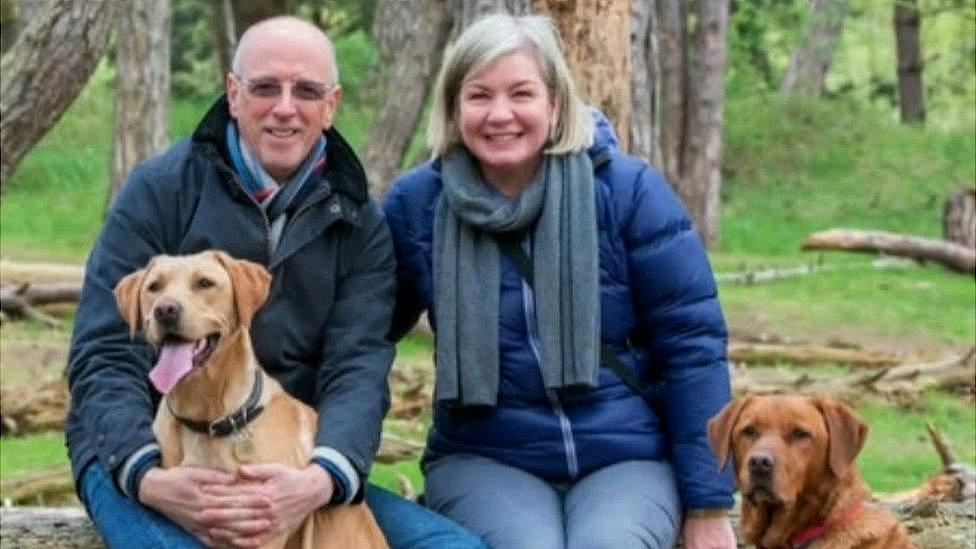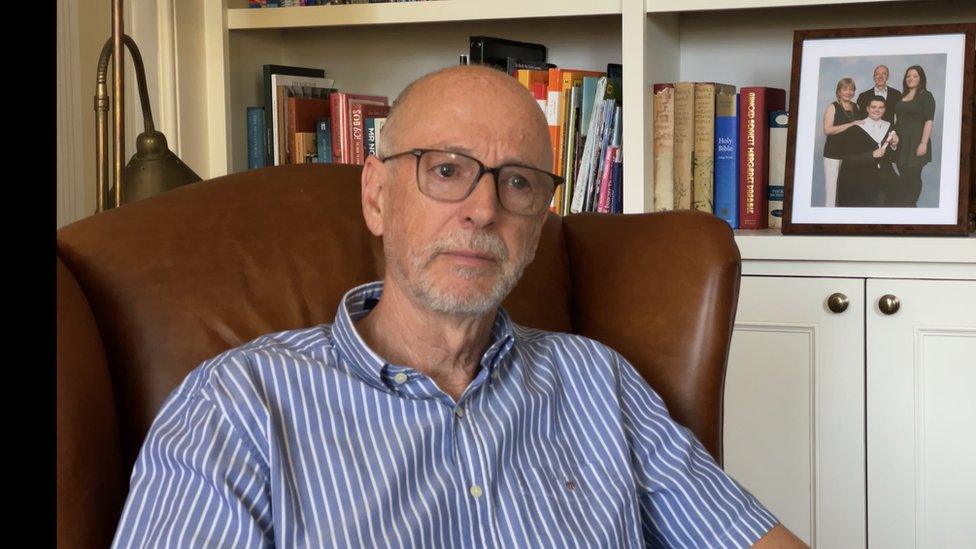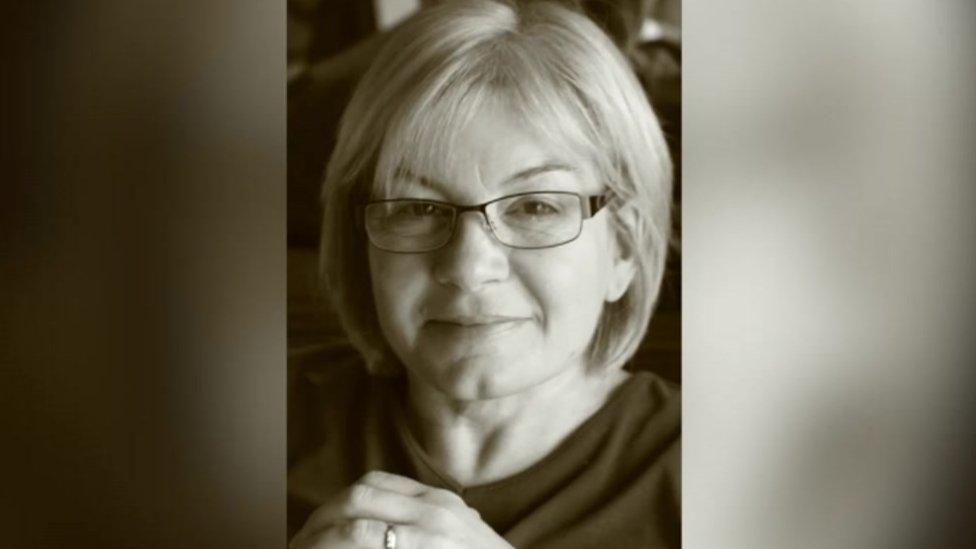Man gives £1m to pancreatic cancer research in memory of wife
- Published

Richard and Lesley Ellis set up a successful holiday cottage company 30 years ago
The family of a businesswoman who died of pancreatic cancer has donated more than £1m to research the disease in a "game changer" development.
Lesley Ellis, who co-founded a holiday firm, was 59 when she died in February 2019 at home in Norwich.
Her husband Richard has now given £1m to develop a test to diagnose the cancer, in addition to funding a team of Cambridge University researchers.
He said he hoped to "ensure fewer people go through what Lesley did".

Richard Ellis wants to help develop a diagnostic test for pancreatic cancer to enable earlier diagnoses and better survival rates
Mr Ellis said his wife of 32 years died just a few weeks after finding a lump on her neck.
The couple, who set up a holiday cottage agency, were in Spain when the mother-of-two first spotted something suspicious.
"She was wife, mother, home-maker, business partner, travelling companion, everything, and she was a wonderful person: very kind, very caring," said Mr Ellis.
"She shot off to her local doctor and from there we were just on a rollercoaster of medical attention.
"I don't think either of us accepted it - we fought it very hard.
"It was very difficult because she was still looking and feeling very healthy... and yet a month from that point she was gone."
Mr Ellis has now helped to fund five PhD students at Cambridge University, external to study the disease, often referred to as the "silent killer".
The family has also given £1m over four years into university research to try to develop an early diagnostic test for the cancer - which relatively little is known about.
"It's a horrible cancer and there's remarkably little research done into it, which is why we felt the need to try to fight back with some of the profits from our business which we created together," Mr Ellis said.
"Although it's one of the biggest killers of all the common cancers, the survival rates haven't changed for about 45 years in this country."

Lesley Ellis was a successful businesswoman when she died aged 59 of pancreatic cancer
The Pancreatic Cancer UK charity found 75% of patients were diagnosed with the disease once it's too late to start treatment.
Lynne Walker, from the charity, said: "I think it will make a big contribution - a game changer would be when we perhaps get to a test for pancreatic cancer and then some more treatment options.
"In order to get to that point we need young academics... researching into the disease and in that sense it's a game changer."

Find BBC News: East of England on Facebook, external, Instagram, external and Twitter, external. If you have a story suggestion email eastofenglandnews@bbc.co.uk, external